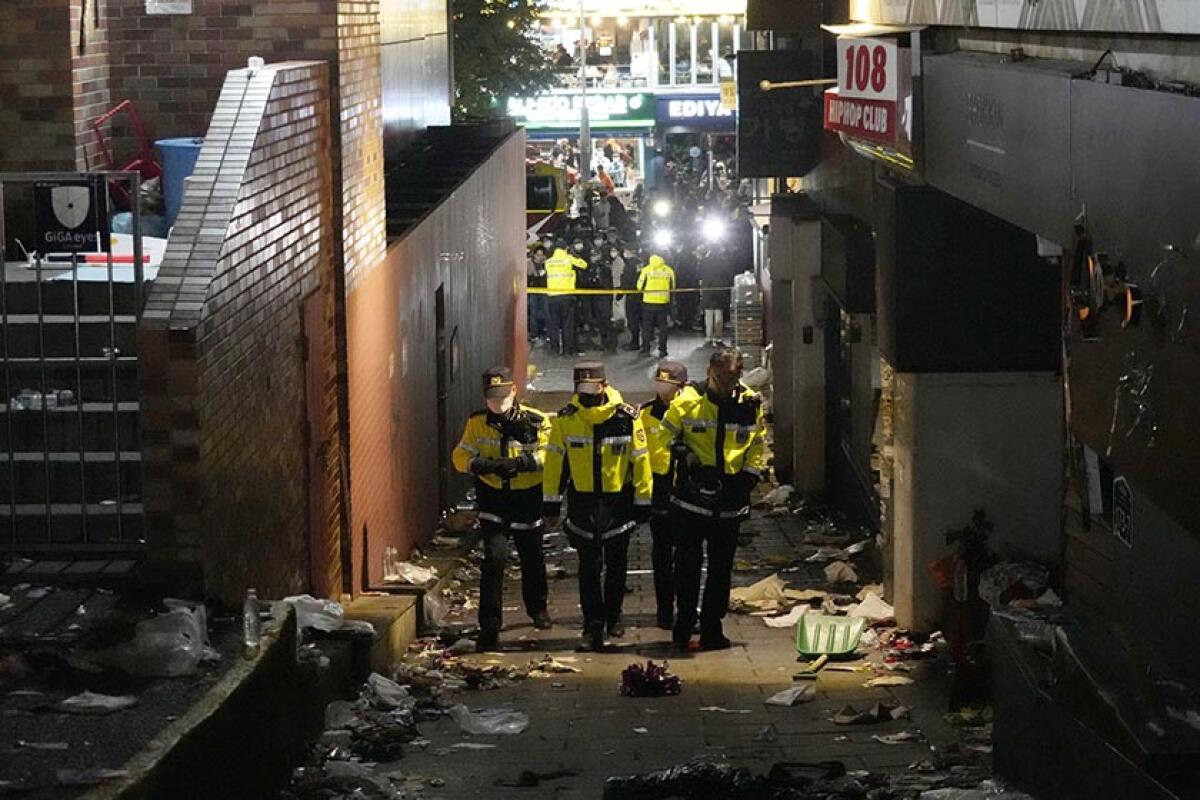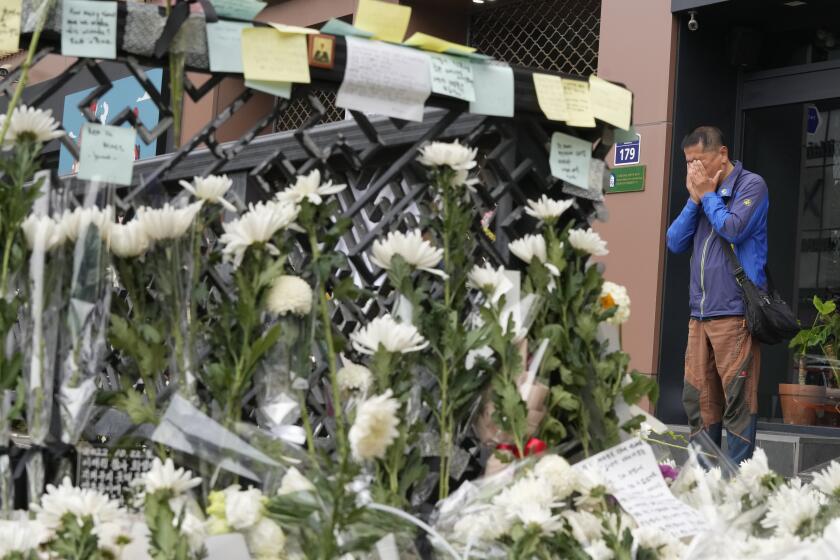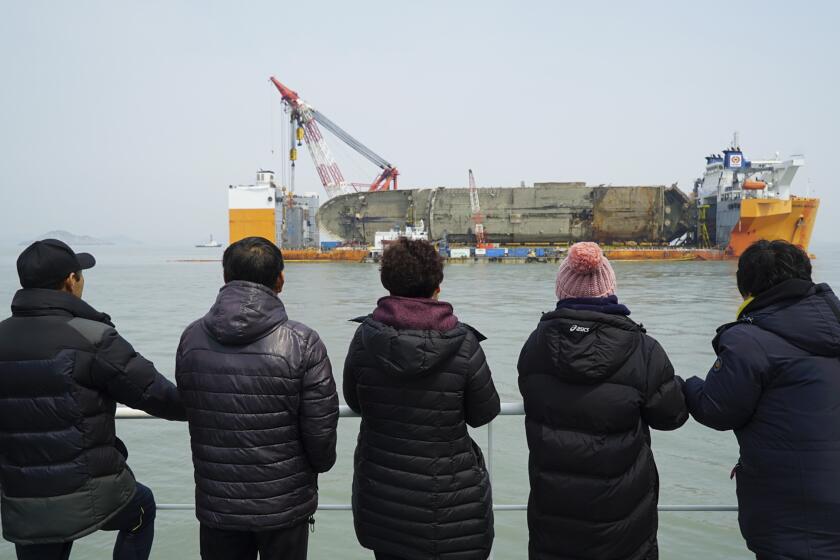Op-Ed: The tragedy in Seoul should force South Korean society to consider the despair of the next generation

One hundred-fifty-six lives were lost in an unimaginable stampede last Saturday in the Itaewon district of Seoul. People from various places and stations in life are gone and most of them were South Koreans in their 20s. This devastating tragedy has forced many in the country to mourn these lives â and to focus on the lives of this generation for whom âyoung and happyâ have become incompatible traits.
South Korean young people face fierce competition in the education system and when they enter the workforce. Younger generations in the past have often carried the burden of brokering South Koreaâs critical transition into democracy, from the April revolution of 1960 to the June Democracy Movement of 1987. But the pressures on this new generation are severe in a society with intractable economic inequality and a lack of social mobility. A lot has fallen on young shoulders, and one has to wonder: What is being done to ensure the safety of their futures?
South Korean youth today are often referred to as the Sampo Generation, meaning the generation that has given up on three things: courtship, marriage and children. The bitterness of the label is true; these young people lack economic opportunities and clear direction for their futures. The list of things they wonât be able to count on is long: employment, home ownership, interpersonal relationships, hope and health. Maybe even life itself.
The Sampo Generation label captures the despair of this generation, one that has been robbed of the ambitions that once defined their parentsâ and grandparentsâ youth. Coming of age during Koreaâs intense struggle in the last three decades with rapid development and globalization, this generation has experienced ruinous financial crises, even as they were just setting out on their own journeys.
The police chief acknowledges that officers didnât effectively handle emergency calls warning of impending disaster in Seoulâs Itaewon district.
In truth, this label says as much about the older generation â the one in power â as it does about the young. It speaks to the pressures â passed down from one generation to the next â to ensure that everyone fits into a patriarchal family structure to fulfill the duty to have children and to sustain the economic expansion that has come to define South Koreaâs postwar national identity. The societyâs deep anxiety over its rapidly declining birth rate is one cause of this social pressure.
The irony is that even as anxiety grows over declining births, the lives of the younger generation arenât treated with dignity or respect. Instead, the youth are treated merely as a fungible labor force, forced into low wages and temporary employment, unable to afford to set their own course.
The untimely death of so many last weekend leaves us thinking about what futures would have been possible for those who were killed. So much in lost dreams and unrealized potentials haunt the entire society.
The tragedy has also caused many South Koreans to relive the nightmarish sinking of the MV Sewol ferry in 2014, where 250 out of the 304 people who died were high school students. The wound from that traumatic event has never healed. It showed the failure of authority on numerous levels, from the captain who abandoned the sinking ship to the successive administrators who would not take responsibility for the catastrophe.
My son and 249 classmates were among the victims of the Sewol ferry disaster in South Korea. We parents deserve answers from our government.
In the aftermath of the Itaewon stampede, we are once again witnessing an utter lack of national leadership and a failure of a crisis management system, which might have prevented the stampede with timely intervention. The open display of crass humor by South Korean Prime Minister Han Duck-soo at his foreign press briefing on the Itaewon incident Tuesday is a prime example of how young lives are treated without respect.
Accusations of failure should not be the end of public debate about the tragedy. South Korean society needs to reflect on how its young people are treated on a daily basis. Beyond the short-lived slogans and campaigns, a more profound cultural shift must take place to confront the socioeconomic structures and daily practices that young people are struggling to overcome.
Once again, it has taken the deaths of many young people to reignite this conversation in South Korean society. I hope that it wonât take the loss of life to compel lasting change.
Suk-Young Kim is a professor of theater and performance studies at UCLA who focuses on South Korean culture. She is the author of âDMZ Crossing: Performing Emotional Citizenship Along the Korean Border.â
More to Read
A cure for the common opinion
Get thought-provoking perspectives with our weekly newsletter.
You may occasionally receive promotional content from the Los Angeles Times.












